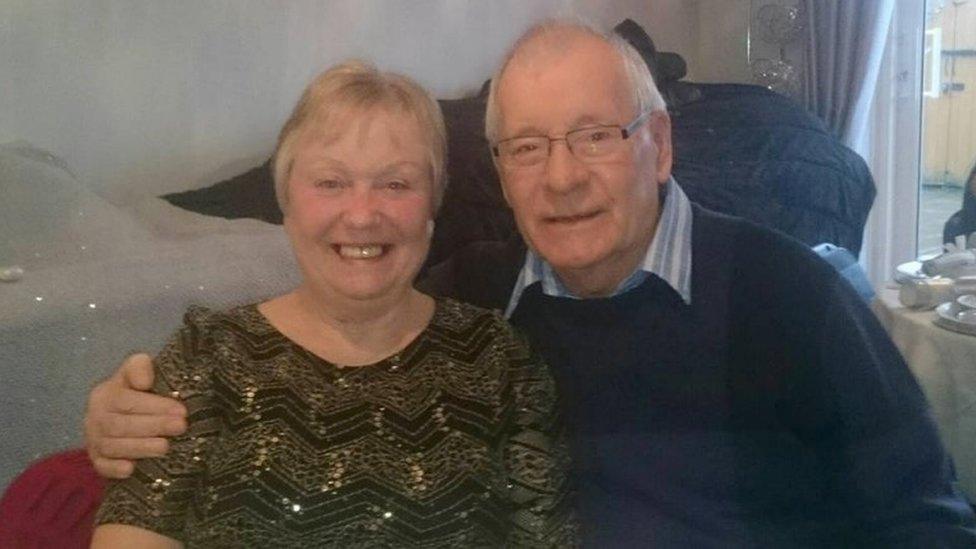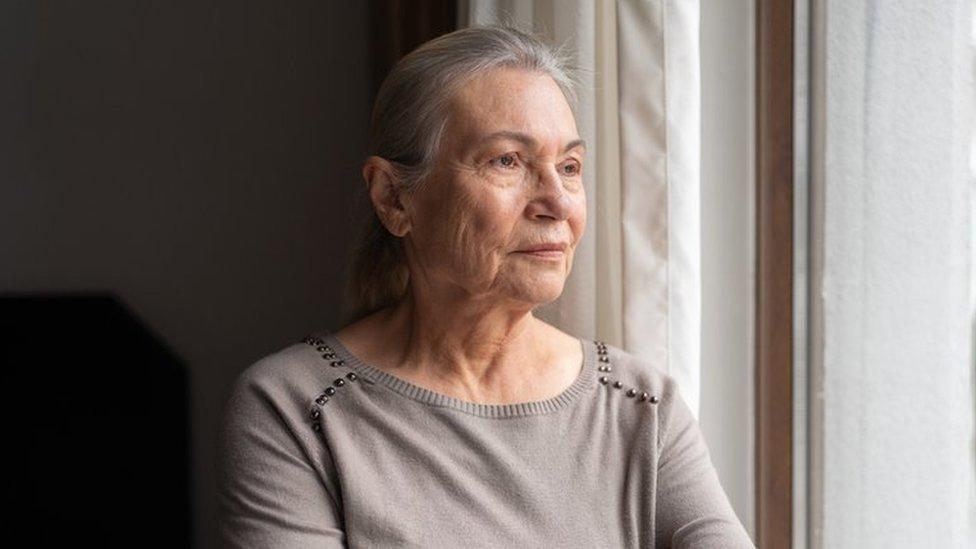'Mercy killing' family call for change in assisted dying law
- Published
Daughter calls for change in laws on assisted dying
The daughter of a woman cleared of murdering her terminally ill husband in a "mercy killing" has said the laws on assisted dying must change so "no family has to go through what we did".
A jury cleared Mavis Eccleston, 80, of the murder and manslaughter of her husband Dennis, 81, in September.
The couple's daughter Joy Munns said her mother "should never have been charged with murder".
Opponents say the case "does not justify a change in the law".
Mrs Eccleston, formerly of Huntington, near Cannock in Staffordshire, was accused of giving her husband a potentially lethal dose of prescription medicine without his knowledge.
She told Stafford Crown Court they both intended to take their own lives and jurors heard she also took an overdose but survived.
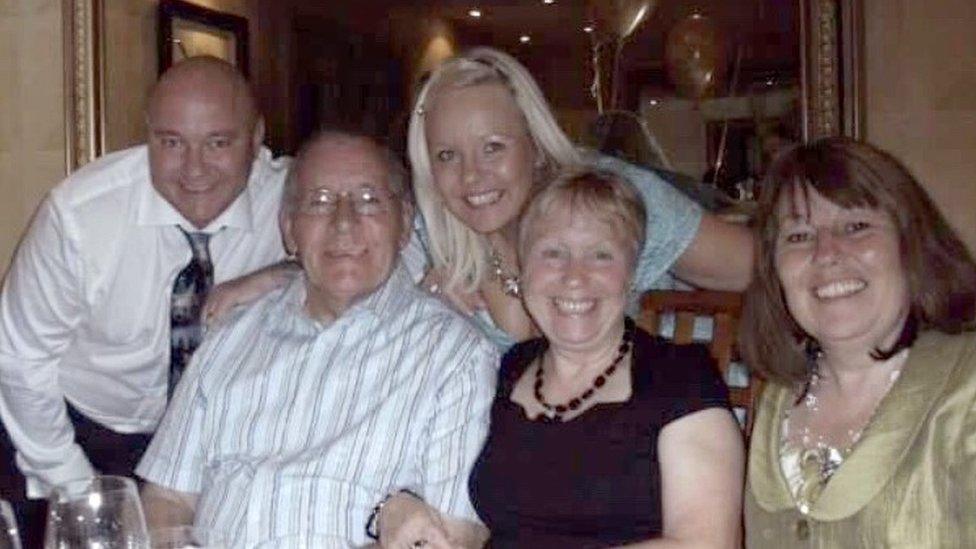
Mavis and Dennis Eccleston pictured with their children (L-R) Kevin, Joy and Lynne
After the couple were taken to hospital, Mrs Munns took a photograph of her parents side by side in hospital beds.
Her father died 20 minutes after it was taken.
The family, which is being supported by campaign group Dignity in Dying, said they had taken the decision to release the picture as they want to "raise awareness" of their campaign.
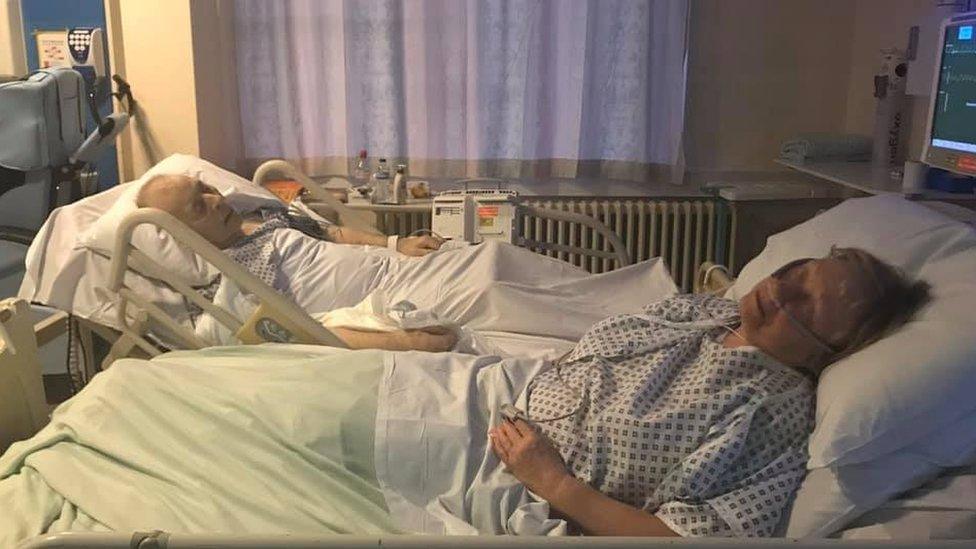
Mavis and Dennis Eccleston were rushed to hospital after being found at their home in February 2018
Mrs Munns, who lives in Drakelow, Derbyshire, said: "There's no way in this day and age we should be working with this outdated law.
"My dad wanted to die at home with his family around him. He wanted to go and not suffer the pain that he did."
Mrs Munns previously said she wanted a change in the law "so that dying people aren't forced to suffer, make plans in secret or ask loved ones to risk prosecution by helping them".
"More families will suffer in silence like ours because of our broken laws," she added.
"I have to believe that everything we went through (for 19 months) was for the law to be changed."
She wants politicians to debate in Parliament the issue of assisted dying and hopes her father's case "will not be ignored".
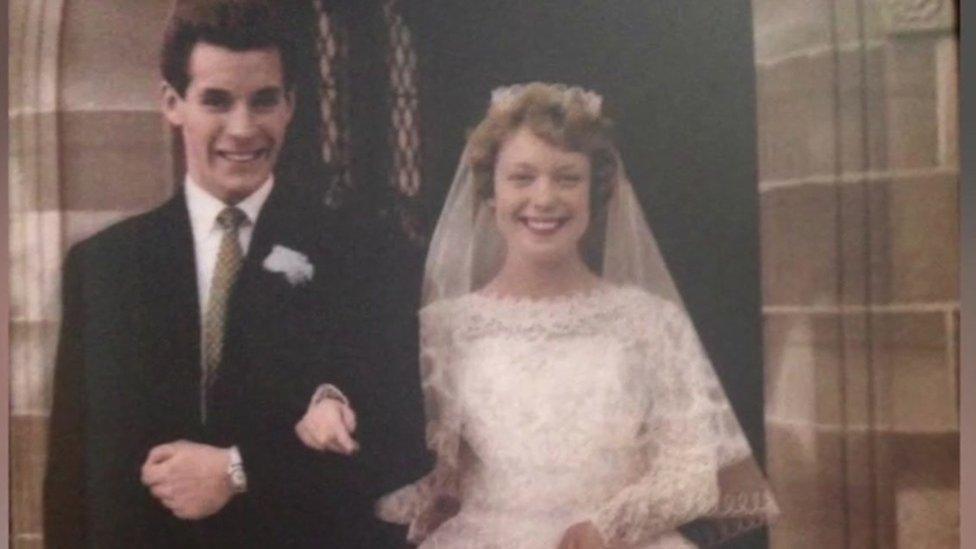
Mavis and Dennis Eccleston had been married for almost 60 years
Assisted dying is legal in a number of countries.
The Suicide Act 1961 makes it illegal to encourage or assist a death in England and Wales. It is an offence punishable with a sentence of up to 14 years.
Dignity in Dying chief executive Sarah Wootton said the law on assisted dying "is not working" and said it "forced [Dennis] to resort to drastic measures to end his life and then criminalised Mavis for acting out of love in helping him".
Dr Gordon Macdonald, chief executive of Care Not Killing, said: "This is a deeply sad and troubling case, but it does not justify a change in the law to allow assisted suicide."

Follow BBC West Midlands on Facebook, external, on Twitter, external, and sign up for local news updates direct to your phone, external.
- Published19 September 2019
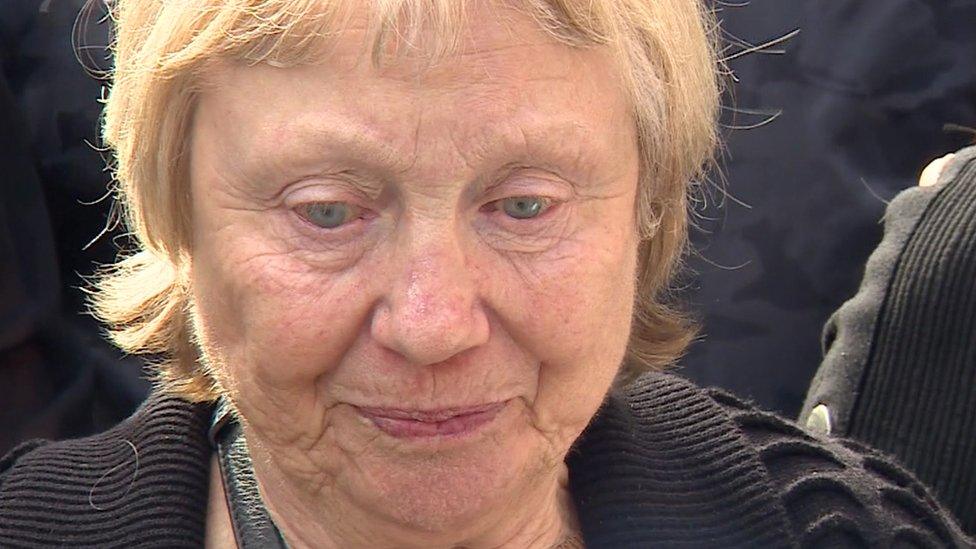
- Published18 September 2019
